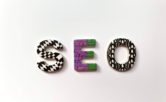
5 Reasons Your Customers are Struggling to Find Your Business Online
With the changing landscape of modern business, it’s becoming increasingly important for businesses to maintain an online presence. A website, social media pages, blogs and other online sources keep traffic flowing to your business, which increases your sales and customer base.
But what if you’ve done all this and none of your customers find your website? This is a common problem that many businesses face. Fortunately, it can be corrected easily. Let’s take a look at the 5 reasons your customers are struggling to find your business online.
1. You’re Not Ranking in Search Engines
Paid advertising can drive traffic to your site, but ideally, you want a lot of organic traffic. This refers to traffic that comes from people who visit your site from search engine results. Naturally, websites that rank higher in the search engine results tend to get better traffic and sales. It’s important to be sure that your website ranks well.
Ranking in search engine results takes some time and work, but it’s well worth the trouble. SEO and content are the two best ways get more visibility for your website. SEO, or search engine optimization, refers to many different aspects of your website, such as your keywords and your website’s loading speed, as well as the structure of your content.
Many factors impact SEO, such as:
- Links: Internal and external links are important for establishing credibility for your brand and related content. Internal links keep customers reading more of your content, while external links may lead another company to reciprocate and generate more traffic for you.
- Meta descriptions: When you read through search engine results, you’ll see a short description of the webpage below the title. This is designed to give you an idea of what it’s about, so be sure that your meta descriptions provide a basic summary and entice the readers to click the link.
- Headers: Header 1 and header 2 need to be relevant to the search terms and identify the purpose of the content for your readers.
- URL: Uniform resource locators, or URL, are specific web addresses. Ideally, you want your website’s name to be clear and relevant to your business to help potential customers identify your product or service.
- Keywords: Keywords are at the heart of effective SEO. These are specific words or terms that people type into a search engine, which then provides a list of results that are relevant to that search. Do some keyword research to identify the most likely keywords your customers will search and be sure to use a variety of them in your content, headers, URL and meta descriptions. Don’t forget your locally-focused keywords as well, if you have a physical location that would benefit from local traffic.
Content is closely related to SEO and encompasses everything from blog posts to infographics. These are indexable pages for search engines and help your website’s visibility online, as well as providing additional opportunities for potential customers to find your business. It also connects to your SEO and builds your brand awareness and authority.
The key to successful content is value, however. You need to understand what your customers are looking for and tailor your content to their needs to get traction. Focus on providing high-quality content that helps your readers and encourages sharing, rather than churning out endless, low-quality content that they scroll by.
2. You’re Not Promoting Your Business
Organic traffic is a great way to attract new customers that comes with time, but it’s not the only way. Referral traffic, which comes from online advertisements and website links, and direct traffic, which is people typing in your website’s address, also account for a lot of your visibility and traction.
Promoting your website will lead to direct and referral traffic. You want your business listed in a reputable online business directory, such as Google, so customers will see your listing when they conduct a search. If you have a physical business location, claim your Google My Business listing and customers will find you when they perform a “near me” search. Be sure that your contact, location and keywords are relevant, however, to avoid attracting the wrong traffic.
Social media is another important promotional tool. Ideally, your website should have pages on Facebook, Twitter and if appropriate, Pinterest and Instagram, as well as other social media platforms that would be beneficial to your specific business. Posting your products or services and content on these sites will help you increase your following and traffic, as well as giving you an opportunity to gain insight into your customer base and engage with them while developing your brand. Over time, you’ll find that you gain followers and new leads just from interacting with your customers on social media.
Paid advertising also helps your online traffic. Pay-per-click advertising, or PPC, is available for many different platforms, which can be targeted to your audience to drive traffic and new leads to your website.
Your website needs to be promoted offline as well. Put your website’s address on all of your promotional content and merchandise to ensure your customers know how to find you online.
3. You’re Not Promoting to the Right Audience
Attracting traffic means nothing if your visitors aren’t looking to buy. All this does is cost you in clicks without generating any return. You can’t appeal to everyone, so you need to define your target audience’s motivations and tailor all your products, services and marketing content to their specific needs.
This is where social media comes in handy. You can engage directly with your audience and find out more about what they’re looking for in a product or service, which gives you valuable insight into how to attract new leads. You also have access to basic customer information, such as location, age range, gender, income, occupation and interests, which can help you direct your efforts toward other prospects like them.
4. Your Site Isn’t Trustworthy
With all the scams online, online shoppers are wary of unfamiliar businesses. Online customer reviews can fix this, however, by giving your potential customers insight into your products and services. This builds trust with leads since most people put the same consideration into online reviews as they do with recommendations from friends and families.
Encourage your customers to leave online reviews that are quick and easy to build a positive online reputation and attract new customers to your business.
5. Your Site Isn’t User-Friendly
People use their computers, tablets and smartphones to search for products online, so your website needs to be seamless across all devices. Users will quickly abandon a website that isn’t mobile-friendly, whether it’s because of navigation issues or poor load times.
To ensure your customers have the best mobile experience, test your website on different devices. Is it easy to find your menu and products? Do the pages load quickly? Is it easy to read on a smaller screen? All these factors impact the time your customers spend on your website, and the more time they spend, the more likely they are to see your products and make a purchase.
Looking to Boost Your Online Presence?
SEO, PPC, website development, social media and all these other factors can be overwhelming for a business, but fortunately, Geary is here for you. We’ve been working with businesses to increase online visibility and traffic with tangible results, so contact us today to see how we can help you!




